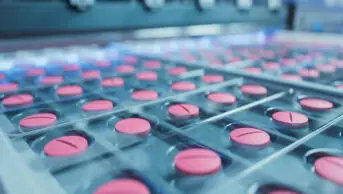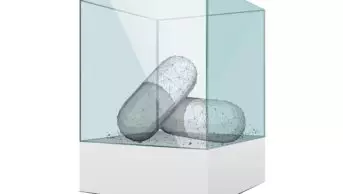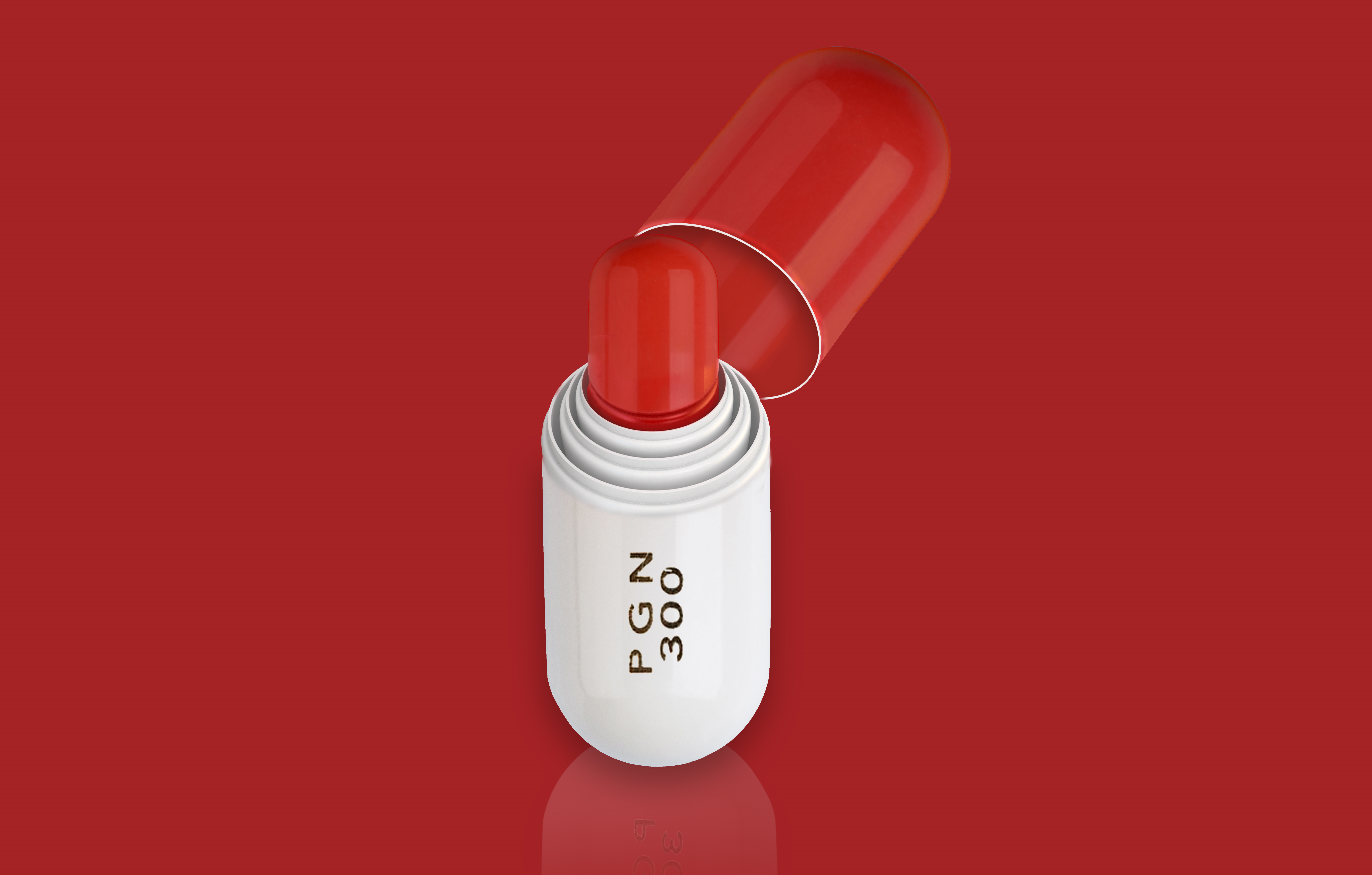
The Pharmaceutical Journal / JL
Years of legal battles over NHS prescribing of Lyrica — Pfizer’s branded version of pregabalin — culminated in a Supreme Court verdict in November 2018, which allayed pharmacists’ fears of being caught in litigious crossfire.
The Court rejected Pfizer’s final appeal for patent protection, and dismissed the notion that pharmacists would have been liable for patent infringement if they had dispensed generic pregabalin to treat neuropathic pain, instead of Lyrica.
Warner Lambert, Pfizer’s subsidiary company, had been locked in the legal dispute over the prescribing of Lyrica in the UK since 2014 when, following expiry of the initial product patent and data exclusivity periods, generics manufacturers Actavis and Mylan began applying for marketing authorisations for their own versions of the drug (see Timeline).
In addition to the product patent, which was based on Lyrica’s expected activity for epilepsy and anxiety, Pfizer also obtained a second medical use patent for neuropathic pain, which did not expire until 2017 (see Panel 1). Actavis and Mylan obtained so-called ‘skinny’ label licenses for their versions of pregabalin in 2015, covering the indications where the patent had expired; however, Pfizer was keen to ensure that the generics were not used for the treatment of neuropathic pain.
Panel 1: Second medical use patents
Once a drug’s patent protection expires, potential earnings for the former patent holder can fall dramatically. One way to extend the life of a patent is through second-line patents. Under EU regulations, second medical use patents can be applied for new therapeutic uses for known active ingredients, “provided that said use is novel and inventive”.
The difficulty in enforcing these secondary patents has arisen because generics manufacturers are able to obtain a ‘skinny’ label license for indications no longer under patent, but there has not yet been full agreement on what constitutes infringement of second medical use patents.
In the most high-profile chapter of the pregabalin saga, the Patents Court ordered NHS England to write to all clinical commissioning groups in 2015, instructing them to ensure doctors only prescribe branded Lyrica to treat pain. The NHS Business Services Authority was asked to instruct community pharmacies to ensure that, as far as reasonably possible, Lyrica was dispensed where it was known that the prescription was for pain. This cost the NHS an estimated £500m and prompted an outcry from doctors who, in the UK at least, were used to prescribing by generic name only and were keen to protect their clinical autonomy[1]
.
The Patents Court ruled that Pfizer’s second medical use claims, including that for neuropathic pain, were not valid
Later in 2015, the Patents Court ruled that Pfizer’s second medical use claims, including that for neuropathic pain, were not valid. And, following its final appeal, Pfizer’s whole case was thrown out by the Supreme Court in 2018.
While the debate over generic pregabalin prescribing appears to have settled, some wider questions around second medical use patents and drug repurposing remain unresolved.
Impractical burden
Gareth Jones, head of corporate affairs at the National Pharmacy Association (NPA), which was a respondent in the case, says the organisation was compelled to intervene because the case being put forward by Pfizer as a test for patent infringement would have put an “impractical burden” on community pharmacists. Essentially, it would have required pharmacists to find out what pregabalin was being prescribed for before dispensing it, leaving them exposed to legal battles if they inadvertently broke patent laws by dispensing generic pregabalin for neuropathic pain.
The NPA was also concerned that if a pharmacist purchased generic pregabalin where it was foreseeable that at least some of it might be used to treat the patented indication, they would have been liable for infringement simply by storing it.
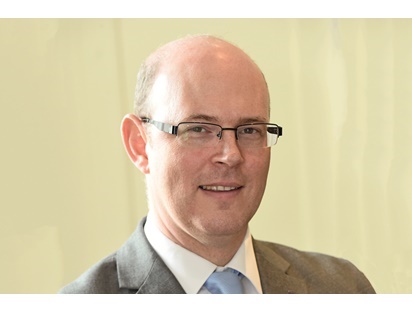
Source: Gareth Jones
The test that Pfizer was proposing was one that was not practical, says Gareth Jones, head of corporate affairs at the National Pharmacy Association
It is clearly an important case that will set a long-term precedent
“The test that they were proposing was one that was not practical,” says Jones.
“It is clearly an important case that will set a long-term precedent — and not just for the UK. We are pleased with the result and that the court recognised the concern of pharmacists.”
Yet Pfizer warns that the Lyrica judgment will have a negative impact on funding for research and development.
“The period that a medicine is under patent is a critical phase in its lifecycle that fuels innovation,” says a spokesperson for Pfizer. “As science evolves and knowledge grows, patients increasingly benefit from ongoing research into new uses for existing medicines.”
The spokesperson adds that, since situations such as these are expected to become more common as drug repurposing increases, it is important for patients that pharmaceutical companies are able to protect patents, including those for a second medical use.
Pfizer points to life sciences organisations and legal commentators who have warned that the judgement brings with it major ramifications for the pharmaceutical industry.
“We believe this ruling has a significant impact on innovation in public health and we maintain our strong belief in the validity and importance of second medical use patents,” says the spokesperson.
“No industry would survive in a world where intellectual property is not respected or protected, as there would no longer be the necessary incentives for companies, such as pharmaceutical companies, to invest in innovation.”
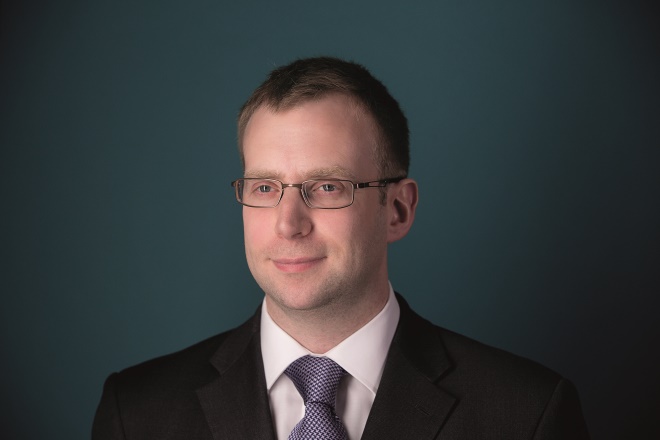
Source: David Fyfield
David Fyfield, an associate at law firm Charles Russell Speechlys, explains that second medical use patents have never sat well within the normal patent framework
Testing for infringement
David Fyfield, an associate at the law firm Charles Russell Speechlys, explains that enforcement of second medical use patents will continue to be an issue owing to the lack of agreement on what the test for infringement should be.
I think we will see other second medical use cases, but it could be quite some time before one gets all the way to the Supreme Court
“We would need another case to go all the way to the Supreme Court and for the validity of the patent to be upheld. So, the only issue is the [patent] infringement and the Supreme Court has to make a decision … on which test to go with.
“I think we will see other second medical use cases, but it could be quite some time before [one] gets all the way to the Supreme Court,” he explains.
Fyfield says that second medical use patents have never sat well within the normal patent framework. “It means we find courts having to make fairly tortuous arguments about how it should work,” he says.
The court ruling did not resolve the problem of skinny label licenses. Although the Supreme Court held that, had Pfizer’s second medical use patent been valid, it would not have been infringed by a skinny label generic version of pregabalin, the five judges in the case were not in agreement on several important points and were not binding on what would constitute infringement for future cases.

Source: Warwick Smith
Warwick Smith, director general of the British Generic Manufacturers Association, says the action a generics manufacturer should take to avoid breaching patent laws remains unclear
Warwick Smith, director general of the British Generic Manufacturers Association (BGMA), says the action a generics manufacturer should take to avoid breaching patent laws in such cases remains unclear.
“This ruling, while useful in supporting generic manufacturers’ arguments, will inevitably mean an added degree of uncertainty in the market, which could lead to delay in generic launches and therefore the benefits those bring,” says Smith.
He makes it clear that generics manufacturers respect valid patents that enable originator drug companies to deliver returns on their research investment. However, he adds that the BGMA believes “it is inappropriate for patent holders to intercede with others in the supply chain in a way that may reduce the uptake of the generic medicine for the nonpatented indications and so diminish the benefits which would otherwise be enjoyed by patients, the NHS and taxpayers”.
Smith explains that the BGMA is willing to help find a solution to ensure that valid medical use patents are respected while making sure the benefits of generic medicines competition are fully realised. But, he adds, where there is doubt about a patent’s validity, and a generic medicines manufacturer believes that the originator is inappropriately delaying access to the benefits of competition, “then it is open to that manufacturer to challenge the validity of the patent in court”.
It is in the wider public interest for invalid patents to be revoked and removed from the patent register
“Indeed, it is in the wider public interest for invalid patents to be revoked and removed from the patent register,” he says.
Repurposing drugs
The Lyrica case highlights a major problem with the concept of second medical use patents, which could potentially hinder drug repurposing. These patents stretch the boundaries of what patents are intended for: the protection of new products. Patents are not intended for new uses of products that are already freely available and widely used.
There are potentially hundreds of medicines that could have secondary indications to those for which they are currently used. According to those who want to see more research and development in repurposing medicines, new models are needed to incentivise investment in clinical research and to protect exclusivity in a fair way.
The difference in the cost of bringing a repurposed drug to market, compared with a new chemical entity, is vast
It has been estimated that the difference in the cost of bringing a repurposed drug to market, compared with a new chemical entity, is vast; with one study citing average figures of US$300m for repurposing a drug and between US$2bn and $3bn for creating a new one[2]
.
As we better understand the mechanism of action of older treatments and the pathways involved in diseases, it stands to reason that the potential for drug repurposing will increase. The most famous of these repurposed drugs is likely to be sildenafil, which was initially developed for angina and hypertension but was discovered to have a side effect that gave the drug a new lease of life: it is now licensed for erectile dysfunction.

Source: Pan Pantziarka
Pan Pantziarka, programme director for drug repurposing at The Anticancer Fund, says that alternative incentive schemes to encourage drug repurposing are needed
Pan Pantziarka, programme director for drug repurposing at The Anticancer Fund, explains that there are currently more than 200 off-patent drugs that have shown some evidence of anticancer effects, half of which are supported by relevant human data and 16% of which are supported by data from at least one positive clinical trial[3]
.
“The trend towards repurposing is increasing all the time and we see this in lots of different disease areas,” he explains. But second medical use patents can be “very precarious”, he says, because doctors can prescribe off label and the indication is not included on the prescription. “In the absence of prescription by indication, the doctor or pharmacist can issue whatever drug they want for their patient,” he explains.
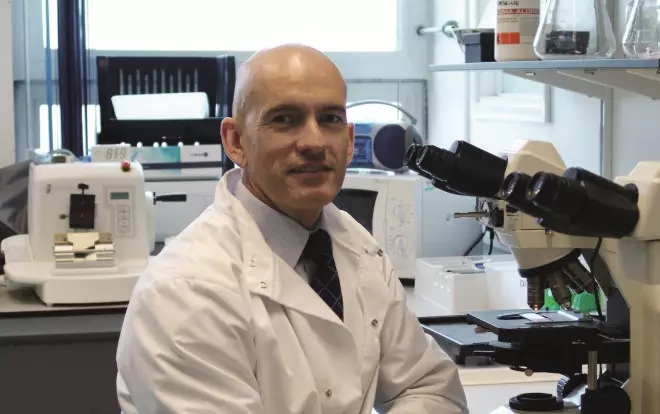
Source: David Dexter
David Dexter, deputy director of research at Parkinson’s UK, says difficulty in defending second medical use patents can cause pharmaceutical companies to be nervous about investing in this type of research
David Dexter, deputy director of research at Parkinson’s UK, highlights that the difficulty in defending second medical use patents can “cause pharmaceutical companies to be nervous about investing in this type of research”.
In 2017, the Association of Medical Research Charities published a lengthy report on facilitating adoption of off-patent, repurposed medicines in the NHS[4]
. The recommendations included providing financial incentives for generic medicines manufacturers to participate in medicines repurposing through tax credits; a UK fund to invest in research into repurposed drugs; and proactive work from regulators to make it clear what is needed for licensing of medicines. A re-evaluation of the proposals is due in 2019.
STAMP, a European Commission expert group on safe and timely access to medicines for patients, is currently working on a framework to regulate repurposing of existing medicines.
Oscar della Pasqua, chair of clinical pharmacology and therapeutics at UCL, argues that the debate around generics and patents often misses the point, which is that there is great potential in drug repurposing but, when approached as an easy win, insufficient planning often leads to trials failing.
He gives the example of the diabetes drug pioglitazone, which failed clinical trials for the treatment of amyotrophic lateral sclerosis because no one had considered its ability to cross the blood-brain barrier.
“It needs to be approached as a research endeavour, rather than an opportunistic activity, and that will involve clinical work to determine dose, route, and so on,” he explains. “It will require collaboration with academia, charities and industry to share the risk.”
What is missing is alternative incentive schemes, says Pantziarka; Dexter and della Pasqua agree. “We are a bit narrow sighted at the moment,” says Dexter.
“We do need a different model [to encourage investment],” says della Pasqua. “It is happening with antibiotics at the moment, where you see collaboration with the EU and the Bill Gates Foundation to support development of those drugs.” Drug repurposing needs that same model, he says, “but at the moment there’s nothing”.
Timeline: how the pregabalin dispute unfolded
2013
- Pfizer’s product patent on Lyrica (pregabalin) expires, but a second medical use patent for neuropathic pain is still valid until 2017.
2014
- Pfizer’s data exclusivity on Lyrica marketing authorisation expires; Actavis applies for a license for its version of pregabalin.
- Pfizer brings a patent infringement claim against Actavis, which fights back with a claim that the patent is invalid.
- Generics manufacturer Mylan also brings a claim against the validity of Pfizer’s second medical use patent.
- Pfizer suggests that doctors, pharmacists and clinical commissioning groups could all be individually liable for patent infringement if pregabalin is prescribed generically for neuropathic pain.
2015
- Actavis is granted a ‘skinny’ label for its generic pregabalin and launches the drug on the market. Several other companies launch generic pregabalin under ‘skinny’ labels over the subsequent months.
- After Pfizer goes to court to ensure its second medical use patent is protected, the Patents Court orders NHS England to issue prescribing instructions that pregabalin should only be prescribed for the treatment of neuropathic pain under the brand name Lyrica.
- Just over six months later, the Patents Court finds Pfizer’s second medical use patent is invalid, including for treating neuropathic pain.
2016
- The Court of Appeal upholds the Patents Court’s decision that Pfizer’s second medical use patent is invalid.
2017
- Pfizer’s second medical use patent for neuropathic pain expires.
- NHS England confirms that doctors can prescribe generic pregabalin for neuropathic pain.
2018
- As a matter of principle, Pfizer makes a final appeal to the Supreme Court. The appeal is rejected, with the Court upholding that Pfizer’s second medical use patent is invalid because it is not deemed plausible that pregabalin would be effective in treating all of the claimed types of pain.
- Despite the five judges in this case disagreeing on several points, the Supreme Court also holds that, had the claims been valid, they would not have been infringed by a ‘skinny’ label generic version of pregabalin. However, these comments do not set a precedent for future cases.
- The Supreme Court also rejects Pfizer’s proposal that pharmacists could have been liable for patent infringement if they dispensed a generic drug used to treat a condition covered by pregabalin’s second medical use patent.
References
[1] Croker R, Smyth D, Walker A & Goldacre B. The clinician impact and financial cost to the NHS of litigation over pregabalin: a cohort study in English primary care. BMJ Open 2018; 8(6):e022416. doi: 10.1136/bmjopen-2018-022416
[2] Pushpakom S, Iorio F, Eyers P et al. Drug repurposing: progress, challenges and recommendations. Nat Rev Drug Discov 2018;18:41–58. doi: 10.1038/nrd.2018.168
[3] Verbaanderd C, Meheus L, Hyts I et al. Repurposing drugs in oncology: next steps. Trends Cancer 2017;3(8):543–546. doi: 10.1016/j.trecan.2017.06.007
[4] Association of Medical Research Charities. Facilitating adoption of off-patent, repurposed medicines into NHS clinical practice. 2017. Available at: https://www.amrc.org.uk/Handlers/Download.ashx?IDMF=c1a3904c-78de-47ed-813c-b34b57ca587c (accessed January 2019)
